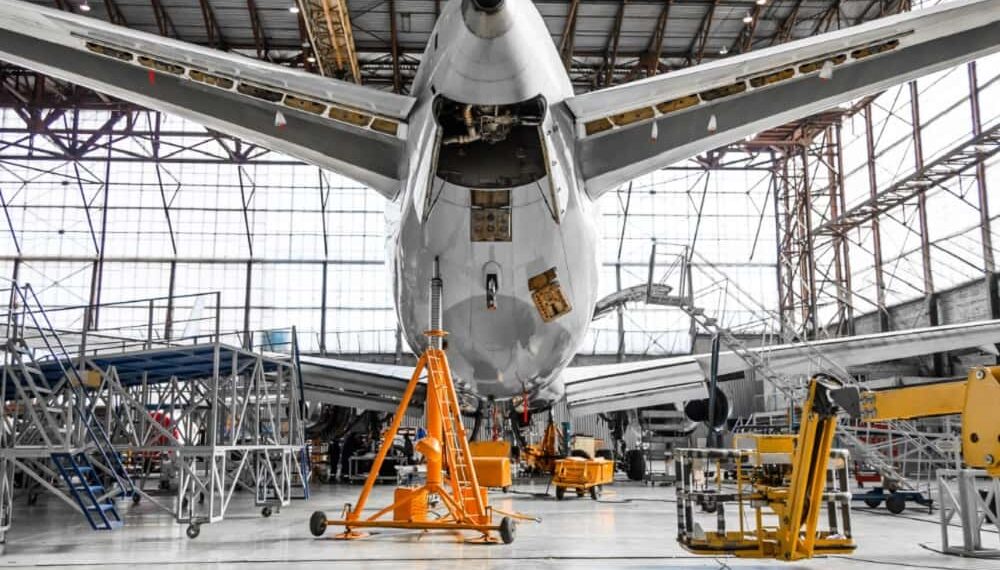The Africa Aviation Maintenance, repair, and overhaul market size is anticipated to increase from $1449.32 million this year to $1672.82 million in the next 5 years, i.e., by 2028, at a CAGR of 2.91% within the forecast period of 2023–2028.
Notably, the COVID-19 pandemic brought havoc to the African economies and, as a matter of fact, caused air connectivity to come to a virtual standstill. The lessened flight activity is anticipated to shift into MRO demand, which happens to be weaker across the region. Simultaneously, business aircraft as well as on-demand service providers went on to witness better flight movements than the airlines having scheduled flight movements. Apparently, cargo demand rose in 2021 because companies were looking to reduce losses by becoming more active in the cargo transport sector and also converting some of their passenger aircraft into cargo freighters.
Besides this, the African aviation industry falls behind the rest of the world’s operators, both in terms of supply and demand. By the end of 2021, Africa happened to be a region with the lowest number of ordered aircraft compared to all over the world. The growth of the fleet is anticipated to remain constrained across the next decade due to geopolitical issues, safety records that aren’t reliable, high airport fees, and a high tax on jet fuel.
At present, there is limited local infrastructure to support the aviation MRO segment across Africa. Just a few MROs across the region are adept enough to perform all kinds of MRO services. That said, the MRO sector in the region happens to be smaller as compared to other regions in the world. Yet the existing MROs are making sure to increase their capabilities through strategic partnerships as well as expansion activities.
It is well to be noted that international players are making sure to expand their footprint across the region and look out for opportunities by making sure to capitalise when it comes to shortcomings in the MRO capacities of the region.
The MRO trends of the African aviation market
Median age of the fixed-wing aircraft fleet functioning in Africa is more than 15 years, thereby pointing out towards a probable struggle when it comes to fleet modernization and the development of aviation infrastructure. In order to capture the elevating market opportunities, firms are robustly expanding their services across numerous countries in the region. For example, the MRO services of ExecuJet have been taken care of by Embraer as its recognised service centre in terms of business jets in Africa.
Besides, some nations are getting new aircraft to make their defence fleet more robust. For example, somewhere in May 2023, the Botswana Defence Force was allegedly in talks with Hindustan Aeronautics Limited- HAL of India to acquire many Tejas fighter jets. The chairman of the company, CB Ananthakrishnan, announced in Aero-India 2023 that he was in talks with Egypt as well as Argentina to acquire a contract to supply 35 Tejas jets to the country’s armed forces.
Moreover, there happen to be numerous outstanding orders when it comes to fixed-wing aircraft from numerous nations, which is anticipated to surge the fleet of aircraft within the region in the future.
That said, new aircraft orders across Africa are anticipated to be at dearth in the next decade because of high airport fees, geopolitical tensions, compromised safety records, and high taxes on aviation fuel.
It is well to be noted that as the fleet age goes up, the yearly MRO expenditure in terms of retrofitting general, military, and commercial fleets is expected to rise.
The overview of Africa’s Aviation MRO sector
The fact is that the African Aviation MRO market happens to be fragmented due to the presence of numerous local as well as foreign MRO providers giving out many types of services to the aircraft operators throughout the region. Some of the major players in the market are Safran SA, Leonardo SpA, Lufthansa Technik, Raytheon Technologies Corporation, and Airbus SE. In the past few years, there has been an investment surge by foreign players to elevate their geographic footprint across the African continent.
Understandably, many local players are collaborating with the OEMs so as to have access to the technical expertise and acquire MRO certification so as to get the on-site MRO services done.
Due to the ever-increasing competitive scenario within the MRO sector, local players are elevating their MRO process efficiency. The market opportunities when it comes to the MRO sector across the continent and the rising investment of organisations are anticipated to raise the competition rapidly across the market in the years to come.


































